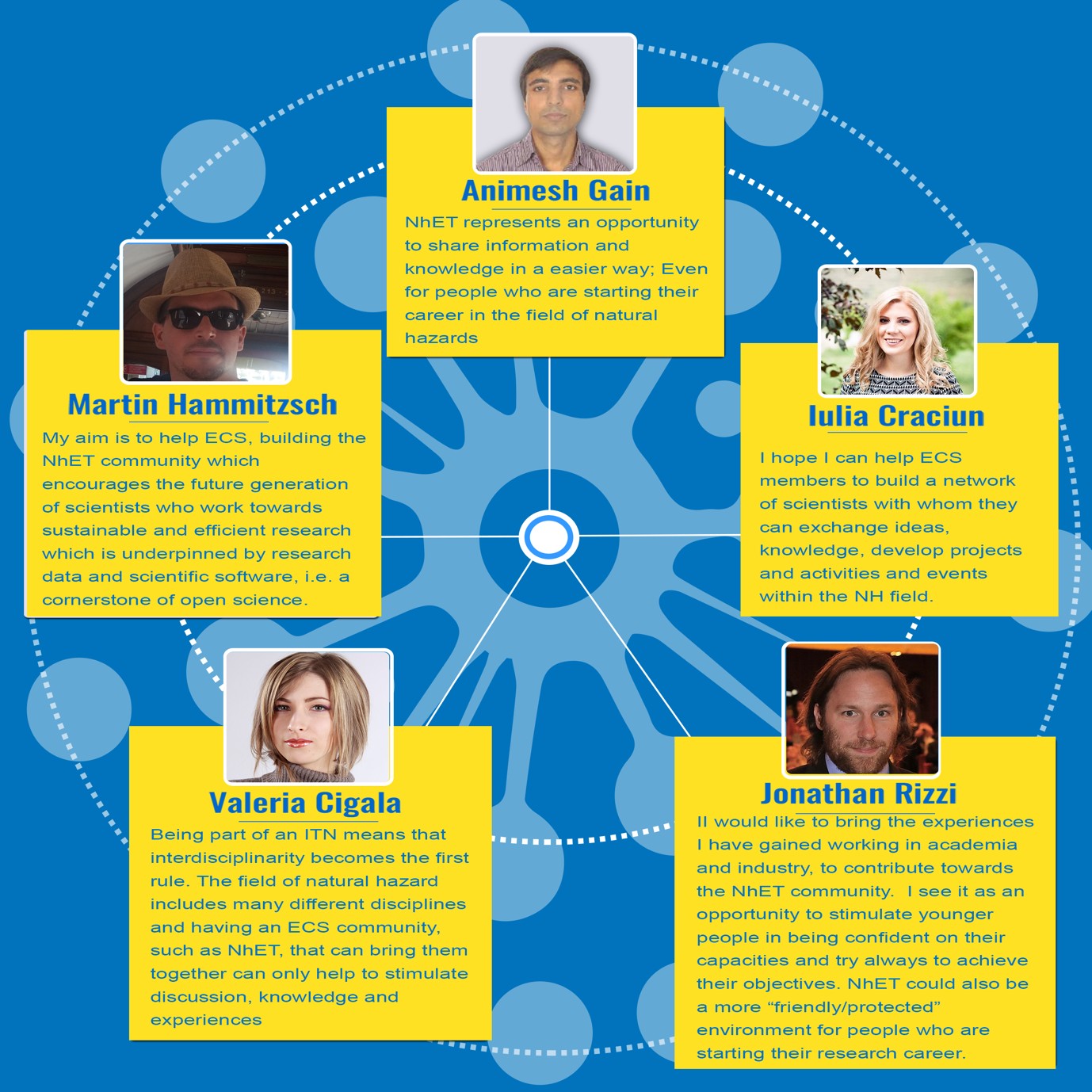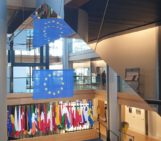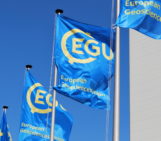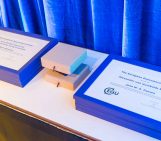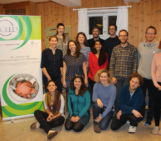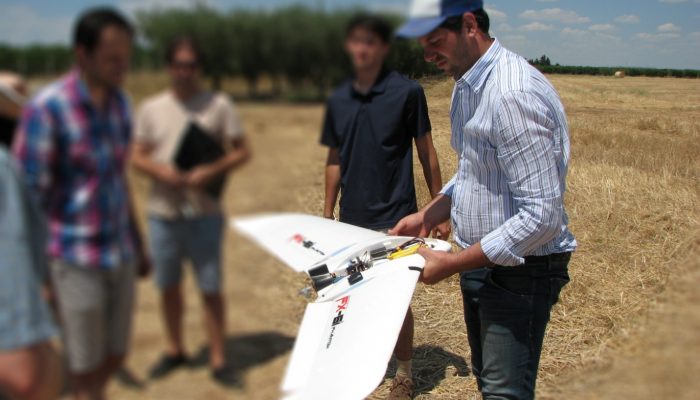
In addition to the usual GeoTalk interviews, were we highlight the work and achievements of early career researchers, over the next few months we’ll be introducing the Division early career scientist representatives (ECS). They are responsible for ensuring that the voice of EGU ECS membership is heard. From organising short courses during the General Assembly, through to running Division Blogs and attending regular ECS representative meetings, their tasks in this role are varied. Their role is entirely voluntary and they are all active members of their research community, so we’ll also be touching on their scientific work during the interview.
Today we are talking to Raffaele Albano, ECS representative for the Natural Hazard Division.
Before we get stuck in, could you introduce yourself and tell us a little more about yourself and your career?
Water, landscapes and nature have played an important role in my life as engineer, as I work to understand how they interact with one another and how they impact humans. As a citizen, I also strive to build an awareness of my surroundings. Currently, I’m a research associate at University of Basilicata (Italy) and I’m co-founder of the Wat-TUBE spin-off devoted to the technology transfer of research results. I also love arts and historical heritages. I cultivate this passion as a volunteer in the UNESCO Young Italian Commission.
During my education and professional experience my curiosity has driven my passion for research and innovation. Therefore, I’m strongly motivated to research ideas to be converted into innovative actions which can lead to positive changes in our society. In particular, my aim is not only to develop and disseminate knowledge, but to also manage and enhance the results to build sustainable technologies.My main research interests revolve around developing models (mainly open-source software) to support flood and drought risk management.
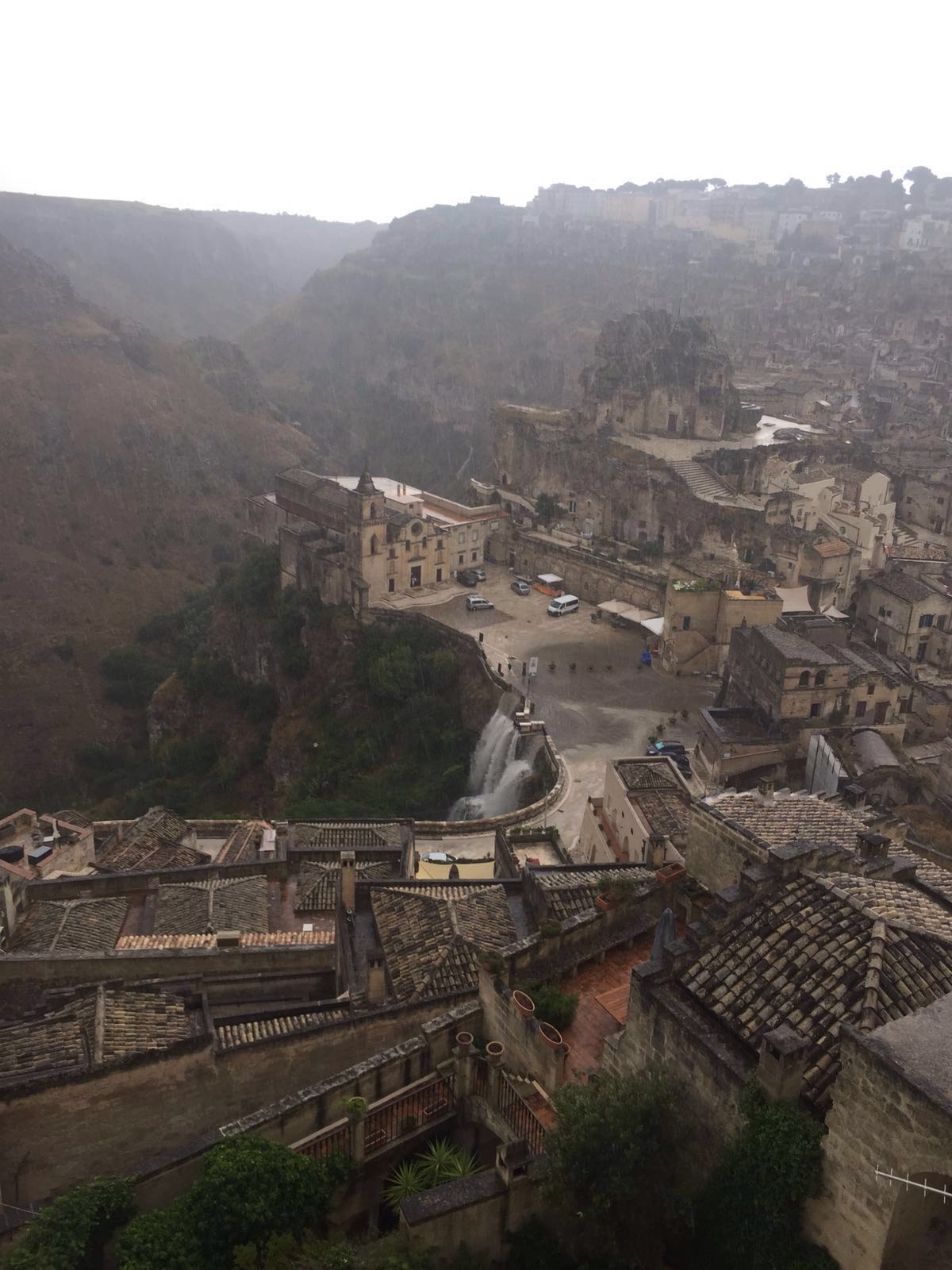
The pluvial flood, July 2016, in Matera (South Italy), nominated European Capital of Culture 2019. The ancient system of tanks in the Sassi of Matera, in which rainwater is collected and accumulated with extreme care. The tanks are an outstanding example of an architectural system, unique engineering and landscape, leading them to be listed as World Heritage of Humanity by UNESCO. In 1927 this water resource management system was replaced by the Sele Aqueduct.
Although we touch upon it in the introduction of this post: what does your role as ECS representative involve?
The ECS community makes up a significant proportion of the EGU membership and, furthermore, ECSs have different needs compared to more established scientists. Therefore, it is important that young members know that they have an important role to play within the Natural Hazard (NH) Division and, in general, in EGU activities. With this in mind, my key responsibility, as ECS representative, is to serve as a link between ECSs and the NH Division. In my role, I want to encourage ECS involvement and active participation in the EGU activities, in particular, during the General Assembly (GA).
I think that ECS Representatives should look at short-term benefits that spur momentum and long-term challenge in engaging young members using their enthusiasm and creativity in shaping an open and better geoscientific community.
I stay in close contact with the NH division president, Prof. Giorgio Boni, and also with some of the science officers in order to be involved in all the activities that concern ECSs (e.g. meetings, conferences, short courses, awards, social activities, and so on), both during the General Assembly and throughout the year. Indeed, as well as several activities organized during EGU 2016, this year, the NH Division has developed a presence on Facebook and Twitter. These are managed by the social media coordinator, Jackson Teller, (who is an ECS member). Moreover, the NH Division plans to propose a call among ECSs to implement and manage a division blog.
Finally, I participate in the regular Skype meetings with the ECS-reps from the other divisions in which we can exchange information, feedback and points of view that could be useful to bring it both to the EGU’s Program Committee and to each Divisions.
Why did you put yourself forward for the role?
At the EGU GA 2016, there were 13650 participants, of which 25% were students and 53% ECSs. It is clear that with so many ECS members, there is an enormous potential to increase ECS involvement, including them contributing at the division and council level. Moreover, typically, new papers, new ideas, new methods, come from the ECS community. Therefore, supporting and promoting, even small contributions for the ECS community (e.g. awards, travel grants, education activities, and other key information), can make a huge difference to young scientists’ careers and, indeed, for the future of the geosciences. It is a nice challenge to provide a real opportunity to re-think the role of ECS from simple consumers to contributors to the NH community .My motto is: Be open, be tuned, get inspired!
What is your vision for the EGU ECS Natural Hazard community and what do you hope to achieve in the time you hold the position?
NH is one of the biggest divisions in the EGU community. Moreover, the division is, by nature, diverse and multidisciplinary. Hence, it is a hard challenge to increase the links between members from different disciplines and backgrounds (e.g. engineering, geologists, sociologists, economists, remote sensing, and so on) in order to exploit its full richness. In this context, a key responsibility of the ECS Representative is to be receptive and responsive to the input provided by the members, creating an atmosphere of openness and inclusion which makes the scientific community more accessible to ECSs. Current goals include enhanced networking opportunities and organisation of short courses, but I believe there are other opportunities that reach far beyond these immediate needs. In this light, I call for more conversation on how the scientific community could be more accessible to ECS and on how ECS members can get organised and make the best use of available opportunities getting more involved in the union. I hope ECSs re-think Geosciences as open process of collaboration, sharing, exchange of ideas and skills in inspired way.
During the EGU 2016, I organised a meeting to which I invited scientists embarking on a career in natural hazards to share their research challenges, results on outreach efforts, and others forms of sciences that involve art, education, policy making, funding and so on. The outcome of the meeting was that we builta team of enthusiastic and motivated PhDs and post-docs who will work to build the NH Division ECS community, informally known as, NhET (Natural hazard Early career scientists Team). We will evaluate objectives, define goals, and create opportunities for ECSs to get involved in the NH scientific and professional community and within theEGU. In my vision, it could become the reference association for all the ECSs that work in this field and could work closely with national scientific associations, (in the field of NH).
What can your ECS Division members expect from the Natural Hazard Division in the 2017 General Assembly?
I encourage all ECSs to collaborate with the NhET team in the organisation of sessions, short course and other outreach activities. At EGU 2017, we plan to promote and publicised sessions and activities of relevance to ECS, such as the NH Division meeting, ECS Forum, and so on. In addition we will support the organisation of the incoming activities (in particular sessions and topical meeting on open data, models and publications, or geo-policy and other outreach emerging topics). Among the numerous activities that we are planning for EGU 2017, we will organize a PICO session, (principally for ECSs), which will be a platform to share ideas, research challenges, outreach and education activities. We are also planning a short course on the open-source and open data model.
To keep up to date with all GA related developments I can suggest attendees check the EGU’s official social media and the EGU website and, in particular, the pages dedicated to ECSs and the NH Division page.
How can those wanting to, get involved with the EGU?
EGU has a long history of actively supporting ECSs by providing reduced conference fees, recognising outstanding students, and awarding travel grants. Moreover, the ECS Representatives are giving more visibility to this big community within the EGU. Hence, I invite ECSs to follow theNH Division on Facebook and Twitter and you can also contact me via email.For more information you can also check the NH Division pages, where you can find job openings, information on awards, publications, meetings and much more. Stay tuned for the upcoming call for the creation of the NH blog.
To find out about all the early career events and activities at the General Assembly and throughout the year be sure to check the dedicated ECS website. There, you’ll also be able to find out who you’re Division ECS representative is, if you’d like to get in touch with them and become involved in the Union. The website also hosts a page full of useful resources for career development as well as a database of undergraduate and postgraduate courses spanning the geosciences across Europe.

